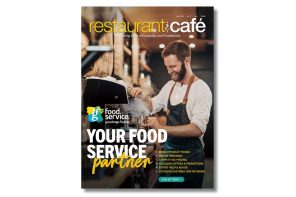While a new survey of Restaurant Association members showed a mixed response to vaccination passports in hospitality venues, the truth is that the only viable way to get the economy back on track is to have most of the country’s eligible population vaccinated.
In the Association survey, when asked if they would support the introduction of a passport style document showing that a person has been vaccinated to enter hospitality venues and events, 26 percent supported the idea but only at Alert Level 2 or higher; 23 percent supported the idea at all levels and 16 percent were unsure.
An increasing number of countries are using vaccine passports not only at their borders, but also to restrict who can participate in social and cultural activities.
Travellers to Europe are quickly discovering that being vaccinated against COVID-19 is a golden key that unlocks access, not only to being able to enter a country, but also to enjoy its daily pleasures.
From France to Greece and from Denmark to Portugal, governments are mandating proof of vaccination status for a wide array of activities including staying at hotels, dining at restaurants and visiting museums. (Scroll down for examples of restrictions in European countries)
It is clear that these restrictions have allowed these regions to open up, and more importantly have allowed them to stay open, without the possibility of more lockdowns hanging over owners’ heads.
While many see vaccine passports as a ticket back to some form of normality, it’s not the sentiment shared by everyone. It should be noted that in every country there is a population of people who cannot get vaccinated for very legitimate reasons, which brings up the question of vaccine passports creating a two-tier society.
In the United States, while seven states have rolled out apps to let people show they have been vaccinated against COVID (allowing them access to venues and restaurants), 22 states have banned the systems to some degree, with several others debating a ban. Critics say introducing restrictions will infringe on civil liberties, unfairly punish those who cannot get vaccinated (and discriminate against those who will not), unleash another form of surveillance, and worsen inequalities rather than eradicating them.
In every country where there have been protests against the introduction of vaccine passports or similar restrictions, the majority of citizens polled actually agree with the measures, however, including in the Netherlands and the United States. Which shows that in this day of social media, it’s sometimes the minority that has the loudest voice.
It seems that here in New Zealand, it’s not so much about hospitality business owners and workers not supporting restrictions, but more about not wanting to be the ones who have to enforce them.
When Restaurant Association members were asked what they perceived to be the main challenges with introducing a vaccine passport, dealing with customers who disregard the policy was ranked as the biggest challenge. This was closely followed by the practicalities of enforcement which ranked as the second biggest challenge.
Coming in third was the challenge around communicating the rule to both local and international customers. This is a challenge that can be easily overcome with a public campaign - are we not remembering that for many decades no one wore a seatbelt? Hell, some cars didn’t even have them! But I bet we also all remember the Make it Click campaign.
Life with COVID is quickly becoming evident as what the ‘new normal’ will look like. With things like vaccine passports becoming the norm all over the world, it really shouldn’t be hard for people to understand what is required of them.
This is the second time the Restaurant Association has surveyed its members on this topic and viewpoints are shifting as the delta variant develops in the New Zealand community.
“An earlier survey conducted just before the delta outbreak showed 70 percent of members were in support of vaccination passports but as the practicalities of managing customers on site has kicked in, our members are now seeing that the biggest challenge is in policing such a mandate,” said Marisa Bidois, CEO of the Restaurant Association.
This is where all foodservice businesses and venues need to unite. As an industry, Kiwi hospitality is amazing at pulling together for a common goal, we’ve seen it time and again over the last two years, and where the industry leads, the community will follow.
If you want business back and if you want business to stay back, you need to support people getting vaccinated. When enough of our community is vaccinated, we won’t need so many restrictions, “policing” won’t have to happen because the majority of customers will be on board. Kiwis want their favourite businesses back. And if it’s not that hard to ask for ID at an over-18 venue, it can’t be that hard to ask for proof of vaccination.
Examples of restrictions:
Denmark
Last month, Denmark rolled out the welcome mat for fully vaccinated American tourists without requiring additional testing or quarantining. A “corona passport” showing proof of COVID-19 vaccination or a recent negative test result is required to enter indoor restaurants, cafes, bars, museums, theatres and cultural events. The requirement does not apply to outdoor venues or establishments.
France
France has officially mandated a digital “health pass” to enter museums, movie theatres, sports venues, festivals, top tourist attractions and all events or places with more than 50 people. Beginning August 1, the health pass requirement will be extended to adults at restaurants, cafés, shopping centres, “as well as for travel by plane, train and bus for long-distance journeys,” according to the app’s website.
Spain
The Galicia region — home to Santiago de Compostela — became the first Spanish territory to require its citizens to show proof of their COVID health status to gain access to indoor cafés, bars and restaurants. The Canary government followed suit, making the digital COVID certificate a requirement for patrons at cafés, bars and restaurants on the island of Tenerife.






